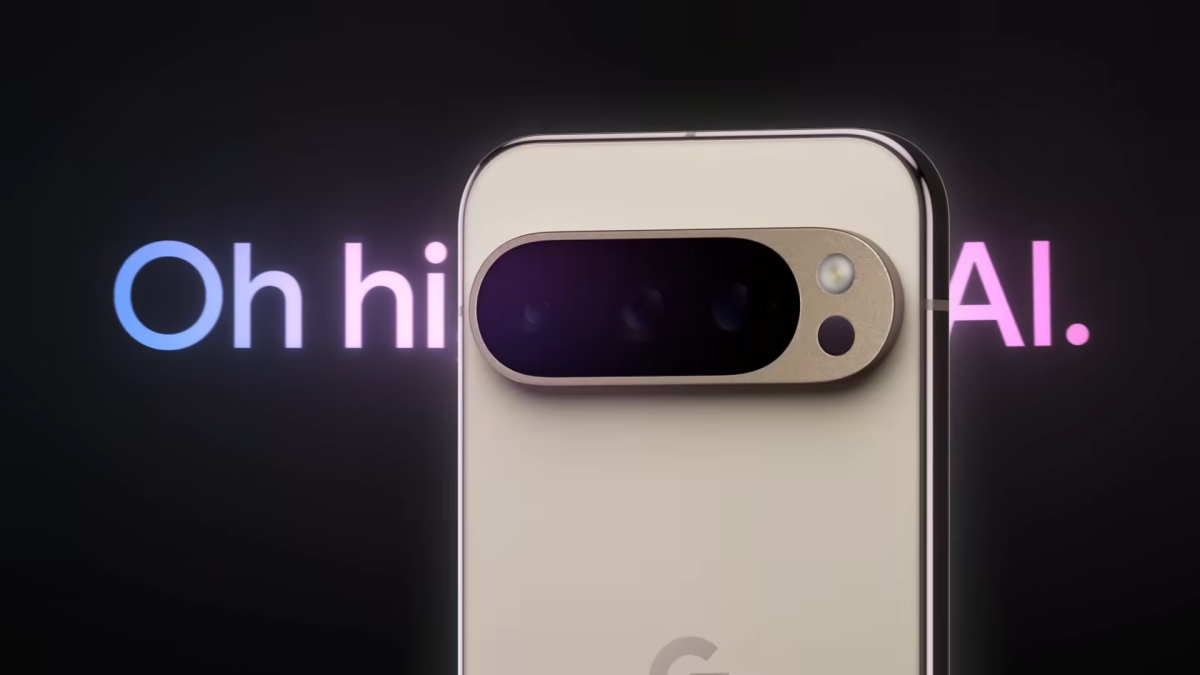
Google takes a slightly different approach to its big product announcements than most. Unlike other companies, who mostly try to retain an air of secrecy before the keynote, Google simply embraces all the leaks and rumors, showing off the devices themselves before Made by Google.
That’s how we know for sure that this year, Google is showing off the Pixel 9 Pro and and Pixel 9 Pro Fold. These two phones are highlighted on the company’s own Made by Google website, but almost act as stand-ins for Google’s larger highlight: AI. Here’s what to expect, and how to watch:
Pixel 9 line
Google has built up the Pixel as a major contender in the smartphone marketplace. Now, it’s unveiling the “9” series, and rumor has it we’re seeing four new phones.
Kicking things off is a standard Pixel 9, which Google hasn’t actually commented on yet. The rumors suggest this could ship with a 6.3-inch display, 12GB of RAM, a 50MP standard camera, and a 48MP ultrawide. What we have seen is its more expensive companion, the Pixel 9 Pro. Google hasn’t provided any specs yet, but, again, rumors suggest it could ship with a higher-resolution display, 16GB of RAM, and three rear cameras—the extra being a 48MP telephoto lens). This year, we could also get an XL variant of the Pixel 9 Pro, which would bump the display up to 6.8 inches. (The rest of the specs are likely the same as the Pixel 9 Pro.)
Last but not least, is the Pixel 9 Pro Fold. Despite having “9” in its name, the Fold is actually only Google’s second attempt at a foldable phone. Rumors suggest it could have a 6.3-inch display on the outside, and an 8-inch display on the inside, coupled with 16GB of RAM, and three rear cameras: a 48MP wide, 10.8MP ultrawide, and a 10.8MP telephoto. If you’re looking for the best cameras, you’ll want a standard Pixel Pro.
All new Pixels are getting Google’s latest in-house chip, the Tensor G4. That means, regardless of which Pixel you want to pick up, you should expect similar, if not identical, performance across devices. That said, rumors suggest the G4 isn’t going to provide a huge bump in performance over the G3, so your Pixel 8 probably won’t be that much slower than the Pixel 9.
Where the real advantage may come, however, is with AI.
Android 15 and Gemini
Google’s next big Android upgrade, Android 15, is on the horizon, and will likely take up some of tomorrow’s focus. We already know quite a bit about Android 15, including new features like Private Space, which gives you a hidden spot on your phone to store sensitive apps and files.
But it seems almost certain that any Android discussion, Android 15 or otherwise, will pertain to AI. Google is rumored to be dubbing its future AI endeavors as “Google AI,” which draws immediate parallels to Apple’s “Apple Intelligence.” And like Apple Intelligence, some of Google’s new features are probably going to be exclusives: We’re expecting some Pixel 9-specific AI features with this announcement, which means they’ll require the Tensor G4 chip to run. These features include Add Me, a feature that might use AI to add extra people to a photo; Studio, which appears to be an AI image generator; and Pixel Screenshots, which may scan the screenshots in your library, turning them into an easy-to-search database.
I’m all for useful AI features, especially ones that beef up privacy and security. However, I’m not seeing anything in the rumors to suggest that Made by Google 2024 is going to be an AI revolution for Google. The company is still coming back from its disastrous AI Overviews rollout, and had to pull a Gemini ad during the Olympics, so I’m not convinced we’re going to see the future of AI roll out tomorrow. Instead, we may see some useful upgrades for Pixel users, especially those who invest in Google’s upcoming line of devices.
That said, we’ll have to see what Google actually decides to announce.
How to watch Made by Google 2024
Google is hosting Made by Google on its main Google Store site on Tuesday, Aug. 13. You can also tune in directly from the company’s YouTube stream here. The livestream starts at 10 a.m. PT (1 p.m. ET).

Comentarios recientes